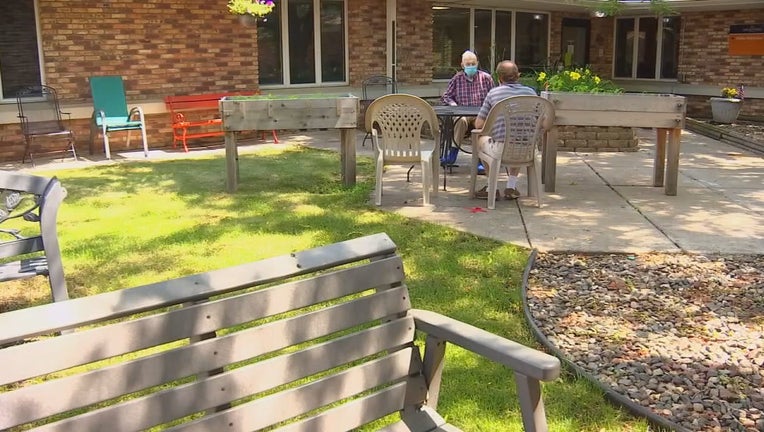Long-term care facilities to be among first to receive COVID-19 vaccine

Family members meet for a visit at a long-term care facility amid the pandemic.
(FOX 9) - While Governor Tim Walz said the vaccine won't be available to the general public likely until late winter or early spring, those living in long-term care facilities could be getting it in a matter of weeks.
“You know, it’s been a long time since our residents have been able to see their families in an intimate way—touching, hugging, kissing—and a vaccine is the only way out of that cycle,” said Doug Beardsley of Care Providers of Minnesota.

Long-term care facilities will be among the first to receive COVID-19 vaccine
Officials say long-term care facilities will be among the first to receive the COVID-19 vaccine.
Window visits and more recently masked visits have been the only way for those living in long-term care facilities to see their loved ones. After eight long months, those barriers may soon be lifted as these settings will be among the first to get the vaccine.
“If we could give it to everyone at the same time that would be great, but that’s a lot to coordinate very quickly,” said Dr. Caitlin Eccles-Radtke and infectious disease specialist at Hennepin Healthcare.
Thanks to a government partnership with major pharmacy chains, there’s already a plan in place to get the staff and the residents at senior living facilities vaccinated. U.S. officials say more than 9,000 facilities nationwide are signed up. People won't be showing up at the stores to get their shots, Walgreens and CVS will instead come to the facilities to distribute.
“We anticipate the rollout will be a little bumpy as everything has been in this fast-moving process, but I think it’s being coordinated as well as it can be,” said Beardsley.
In addition to working with Care Providers of Minnesota, Beardsley is also a member of the state’s Vaccine Allocation Advisory Group. He feels confident with the distribution plans, but worries the biggest hurdle will be convincing all the workers to actually get the vaccine as employers can’t require it.
“We’re going to have to do a good sales job of why accepting this vaccine in your body is acceptable, it’s safe,” said Beardsley.
While the general public is months away from getting their dose, Dr. Eccles-Radtke says the speed at which this is happening shouldn’t discourage.
“They’re not skipping steps, they’re just moving through the process more quickly because of resources and lack of red tape compared to normal,” she said.

